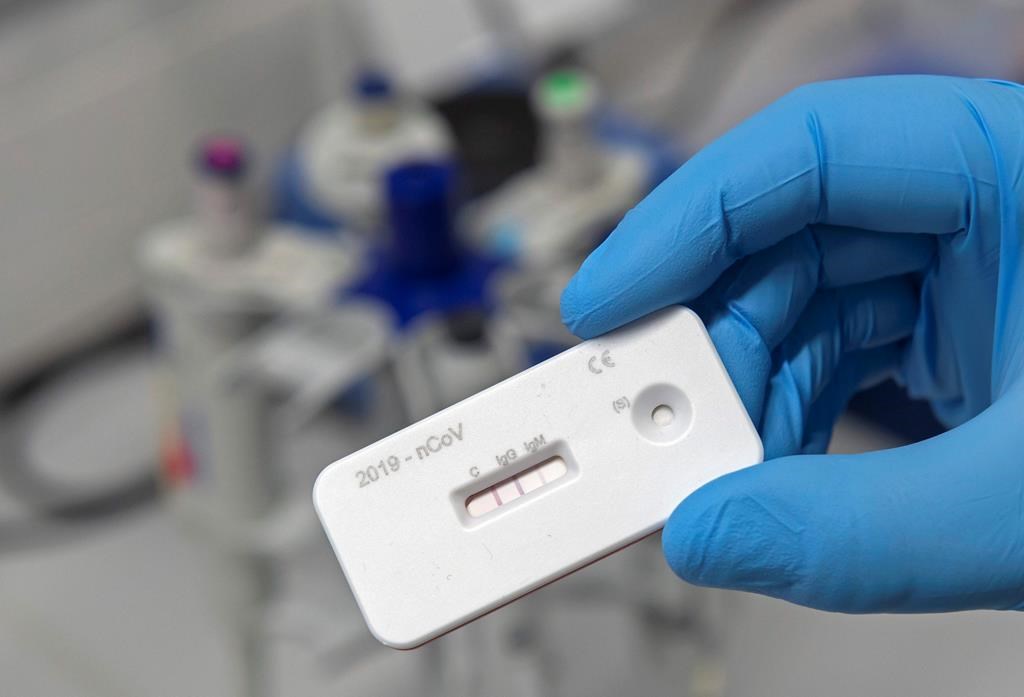Antibody testing could play a part in deciding when life can return back to normal in Saskatchewan.

“I think this is a really important area of investigation,” said Dr. Saqib Shahab, Saskatchewan’s chief medical health officer, during a teleconference on Saturday.
Shahab says the province is partnering with the Public Health Agency of Canada and other agencies to look into this type of serological testing for COVID-19.
Serological tests — also known as blood tests or antibody tests — are currently being approved by Canada, said Shahab, and could be available in the next few weeks.
The tests — which use a finger-prick of blood on a test strip — can determine who had COVID-19 and who built up an immunity against the virus.
“Over time that will be essential for us to know how widely has COVID-19 has spread, which age groups is it impacting more, which age groups and which populations built a strong immune response verses those who have not mounted a strong immune response,” said Shahab.
Saskatchewan has been using nasal and oral swabs to test for COVID-19. But these tests can only determine who has the virus.

Get weekly health news
“It tells you if you’re currently infected, and that’s important to know if you need to be in self-isolation,” said Shahab.
But antibody tests can play a bigger role in preventing repeat infections.
“It’s a really important question and an active area of research into the future,” Shahab said.
As of Sunday, 19,276 COVID-19 tests have been performed in Saskatchewan, which officials say is the second-highest per capita testing rate among the provinces.
Premier Scott Moe says he’s pushing to ensure 1,500 tests are done per day by the end of the month. The province recently added more testing machines in the province, including one in Meadow Lake, Sask.
“We will start to introduce — and we have ordered — some rapid testing kits, that don’t test antibodies, but do test for COVID-19. And hopefully we’ll be able to get in some products that will test for antibodies,” Moe said Saturday during a teleconference.
Over the weekend, Saskatchewan reported that half of the cases in the province have recovered, and for the first time there are more recoveries than active cases.
As of Sunday, 167 people have recovered while active cases stand at 130.
Shahab said Saskatchewan’s curve remains flat, but we should remain “extremely cautious” as it’s “too early to let our guard down.”
“We know that in many provinces, half of the deaths had been due to outbreaks in long-term care facilities, for example,” Shahab said. “We’ve been fortunate through our measures and other steps, and in other cases, good luck to not have those outbreaks.”
Moe agreed, saying Saskatchewan is fairly early in our curve, and that it’s still too early for the province to lift restrictions.
“We still have a number of challenges that we could be presented within the days and weeks ahead,” Moe said. “That’s why we need to ensure we have a robust testing process in place.”
Questions about COVID-19? Here are some things you need to know:
Health officials caution against all international travel. All international travellers returning to Saskatchewan are required to self-isolate for 14 days in case they develop symptoms and to prevent spreading the virus to others.
Symptoms can include fever, cough and difficulty breathing — very similar to a cold or flu. Some people can develop a more severe illness. People most at risk of this include older adults and people with severe chronic medical conditions like heart, lung or kidney disease. If you develop symptoms, contact public health authorities.
To prevent the virus from spreading, experts recommend frequent handwashing and coughing into your sleeve. They also recommend minimizing contact with others, staying home as much as possible and maintaining a distance of two metres from other people if you go out.
For full COVID-19 coverage from Global News, click here.














Comments